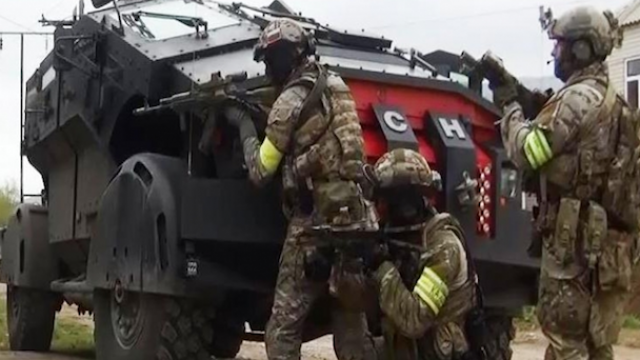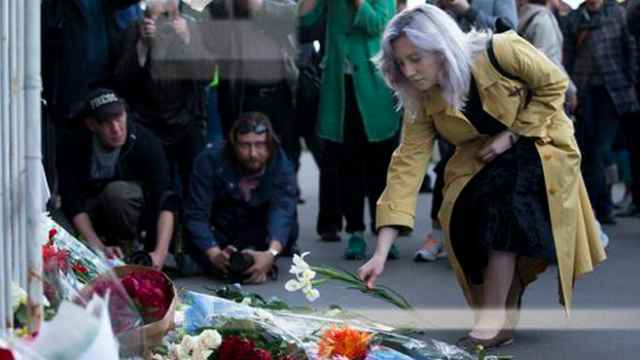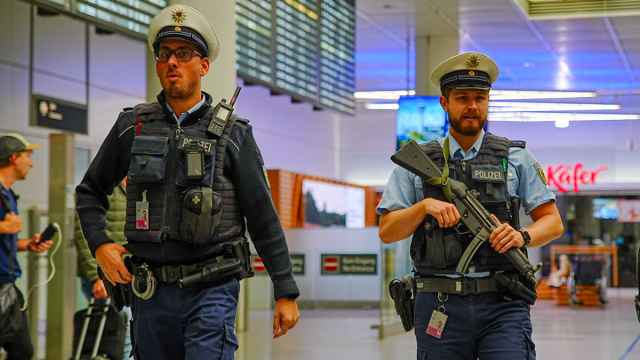The Russian State Duma has recommended new anti-terrorism measures requiring telecommunications operators to store phone and Internet records for three years.
Companies are currently only required to record and store connection details for six months. The new law would change the system to ensure that the content of any call or message would be saved for half a year, while the connection details would be stored for three years, the Interfax news agency reported Friday. All information would be available to state officials “on demand,” the Meduza news website reported in May.
Andrei Soldatov, a prominent media and security analyst, told The Moscow Times that he was concerned about the totalitarian procedures of surveillance under discussion.
Soldatov said that Russia’s expanding control of the Internet is based on the intimidation of businesses. This law, he says, is not about “improving surveillance,” but about “finding ways to put pressure on companies.”
The authorities are looking to engage the companies in an ongoing conversation on surveillance, and this law is a pretext for them to do so, said Soldatov.
Previous versions of the law also required companies to keep call content on record for three years, but by reducing those original requirements, the government has essentially “forced the industry to accept the idea in principle, and then presented concessions,” Soldatov said. Once the legislation passes, local prosecutors, the FSB, and other officials will be able check up on telecommunications companies and put further pressure on them to adopt the new conditions, he said.
Russia does not have an effective system of mass surveillance, unlike countries such as the United States. When people are sent to jail for critical Internet posts, they are generally identified using traditional methods rather than a technological identification system.
Soldatov said that while such an identification system may not be in place, the law will further the goal of psychological intimidation and self-censorship. “People know that users can go to jail for posting critical things, so there’s an atmosphere where what you write can be turned against you,” he said.
The new measures were introduced to parliament as part of a larger anti-terrorism package introduced by the Security and Anti-Corruption Committee, the first draft of which was approved in May. The law’s authors are two of the legislature’s most loyal politicians: Irina Yarovaya, a United Russia deputy in the Duma, and Viktor Ozerov, a senator in the Federation Council.
It is not the first repressive law which Yarovaya has instigated. She has previously recommended limiting travel for those who “justify” extremism online, allowing police to fire into crowds, banning drug users from jobs, criminalizing the offense of religious sentiments, and requiring NGOs receiving foreign funding to register as foreign agents.
Soldatov told The Moscow Times on Friday that he predicted that the law would “absolutely pass,” with Yarovaya’s name on the bill acting as a guarantee of its adoption.
Contact the author at [email protected]
A Message from The Moscow Times:
Dear readers,
We are facing unprecedented challenges. Russia's Prosecutor General's Office has designated The Moscow Times as an "undesirable" organization, criminalizing our work and putting our staff at risk of prosecution. This follows our earlier unjust labeling as a "foreign agent."
These actions are direct attempts to silence independent journalism in Russia. The authorities claim our work "discredits the decisions of the Russian leadership." We see things differently: we strive to provide accurate, unbiased reporting on Russia.
We, the journalists of The Moscow Times, refuse to be silenced. But to continue our work, we need your help.
Your support, no matter how small, makes a world of difference. If you can, please support us monthly starting from just $2. It's quick to set up, and every contribution makes a significant impact.
By supporting The Moscow Times, you're defending open, independent journalism in the face of repression. Thank you for standing with us.
Remind me later.






